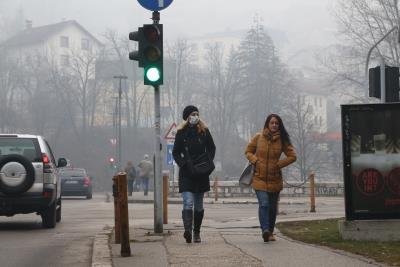
[ad_1]
(MENAFN – IANS)
London, 29 Nov. (IANS) New research adds to the growing body of evidence that high levels of air pollution can amplify waves of contamination from SARS-CoV-2, the virus responsible for Covid-19 disease.
The study, published in the journal Earth Systems and Environment, investigated the possible interactions between acutely high levels of fine particulate matter and the virulence of coronavirus disease.
The result suggests that high concentrations of particles smaller than 2.5 micrometers can modulate, or even amplify, the waves of SARS-CoV-2 contamination and explain in part the particular profile of the Covid-19 pandemic.
“The study provides preventive measures related to air pollution to limit future outbreaks of coronavirus-related morbidity and mortality,” said study author Mario Rohrer of the University of Geneva in Switzerland.
Covid-19 studies conducted in Italy and France suggest that SARS-CoV-2 was already present in Europe at the end of 2019, while the sharp increase in morbidity and mortality was only recorded in the spring of 2020 in Paris and London.
“This time frame is surprising, but it also suggests that something other than just the interaction of people can promote the transmission of the virus, and in particular the severity of the infection,” Rohrer said.
The research team was able to show that these increases in cases followed phases where the levels of fine particles in the air were higher.
The team made similar observations in the Swiss canton of Ticino, where fine particle pollution increased sharply during a period of shallow fog on the Magadino plain and Sotto Ceneri, observed in late February 2020.
The results showed that acute concentrations of fine particles, particularly those below 2.5 micrometers, cause inflammation of the respiratory, pulmonary and cardiovascular tracts and thicken the blood.
“In combination with a viral infection, these inflammatory factors can lead to severe disease progression. The inflammation also promotes attachment of the virus to cells,” Rohrer said.
However, the researchers also point out that although particulate pollution may affect the virulence of the virus and the possible severe progression of the disease, physiological, social or economic factors will clearly influence the further course of the pandemic as well.
“This study offers the possibility of taking preventive measures in the event of future increases in concentrations of fine particles, thereby limiting a new flare-up of Covid-19 morbidity and mortality,” the team noted.
-IANI
this / dpb
MENAFN29112020000231011071ID1101203351
Legal Disclaimer: MENAFN provides the information “as is” without warranties of any kind. We accept no responsibility for the accuracy, content, images, videos, licenses, completeness, legality or reliability of the information contained in this article. If you have any complaints or copyright issues related to this article, kindly contact the supplier above.
.
[ad_2]
Source link